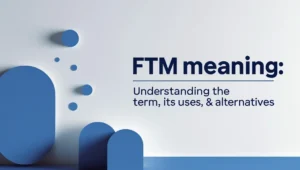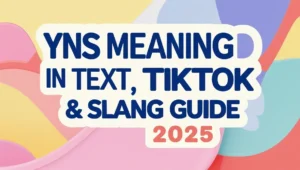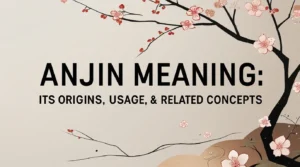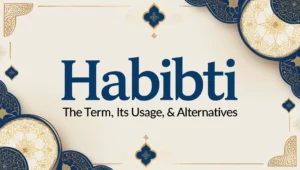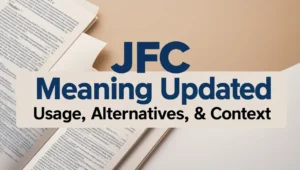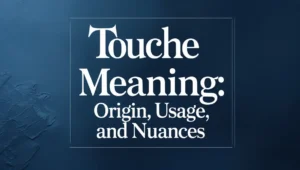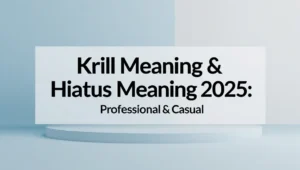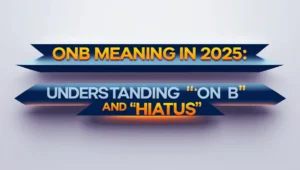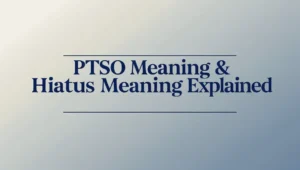In the ever-evolving world of digital communication, especially in 2025, new texting abbreviations and acronyms continue to pop up almost daily. One such abbreviation that’s been both misunderstood and widely used is POS. So, what does POS mean in text? While many associate it with point-of-sale systems in retail, in texting, it has an entirely different—and sometimes surprising—meaning. In this article, we’ll explore the full picture of the POS acronym in texting, how it’s used today, and what you need to know about its advanced applications in 2025 conversations.
Understanding “POS” in Text Messages
In texting, POS typically stands for “Parent Over Shoulder”. It’s a discreet and often humorous way for someone, especially teens, to signal that they can’t talk freely because a parent (or authority figure) is nearby. This kind of shorthand is part of the secret language of texting that’s developed over the years—designed to keep messages brief, clever, and sometimes coded.
This meaning contrasts sharply with what POS means in other contexts, like “Point of Sale” in business or “Piece of Sh*t” in more vulgar conversations. The texting version is lighter, but depending on the situation, it can still carry an important signal—especially when privacy is needed.
How the POS Acronym Has Evolved in 2025

As of 2025, texting abbreviations have become more dynamic, often adapting to cultural shifts and generational slang. The use of POS has broadened slightly:
- “Parent Over Shoulder” is still the most common.
- “Privacy Overridden Situation” (less common but seen in professional environments where someone is being observed).
- “Proof of Status” in certain online communities—used sarcastically to demand someone back up their claims.
These advanced uses of POS show how language, especially digital slang, keeps evolving. With AI language models, predictive text, and even autocorrect tools integrating slang, POS now appears in more nuanced ways across texting apps, social media, and even workplace messaging platforms like Slack or Teams.
Why It Matters: Digital Literacy in 2025
Understanding texting language like POS isn’t just for teens anymore. In 2025, as more generations embrace fast-paced digital communication, knowing what POS means in text is part of being digitally literate. Here’s why it’s important:
- Parents can better understand their children’s online behavior.
- Educators can keep up with classroom tech usage.
- Professionals can avoid misunderstandings in team chats.
- Marketers can better relate to Gen Z and Gen Alpha audiences.
Just like emojis, these texting abbreviations carry emotion, intent, and tone—sometimes more than the words themselves.
Common Situations Where “POS” Is Used in Texting

Let’s break down when and why someone might drop a “POS” in a message:
- During sensitive conversations: When someone’s talking about something private and suddenly needs to change the subject.
- In group chats: To signal that someone isn’t free to talk openly, especially among friends.
- On social media DMs: When users want to warn others that they’re being watched or recorded.
An example: “I can’t talk rn, POS. Talk later.” This quickly tells the other person, “I’m not alone, be careful what you say.”
Advanced Texting Terms to Know in 2025 (Related to POS)
Here are a few other modern abbreviations that often appear alongside POS:
- PIR – Parent In Room
- PAW – Parents Are Watching
- KPC – Keeping Parents Clueless
- WTTP – Want To Trade Pics? (Be cautious—often used in risky conversations)
- GNOC – Get Naked On Camera (Used dangerously online—know this one for safety)
Just like POS, these acronyms can carry meaning far beyond the surface. In 2025, digital communication is layered, and reading between the lines is often necessary.
Unique FAQs About POS in Text (2025 Edition)
1. What does POS mean in text slang? POS most commonly stands for “Parent Over Shoulder,” used to signal someone is nearby and conversations may not be private.
2. Can POS have different meanings depending on the context? Yes. In texting, it usually means “Parent Over Shoulder,” but in vulgar slang, it can mean something offensive. Context matters.
3. Is POS still used by teens in 2025? Absolutely. It’s still relevant, though it now appears with other slang terms or as part of emoji-coded messages.
4. How can parents or teachers decode acronyms like POS? By staying updated with teen texting slang, using online acronym dictionaries, and fostering open conversations about digital behavior.
5. Is POS ever used in professional settings? Rarely, but when it is, it may mean something like “Privacy Overridden Situation” or as sarcastic workplace slang depending on the culture.
Conclusion: POS Is More Than Just Letters
Understanding what POS means in text in 2025 is about more than just decoding slang—it’s about staying connected in a digital-first world. Whether you’re a parent trying to keep your kids safe, a teacher wanting to engage with students, or just someone trying to stay relevant in texting culture, knowing acronyms like POS is part of modern communication fluency. As texting continues to evolve, these shorthand terms help us express more with less—just three letters can say a lot.



